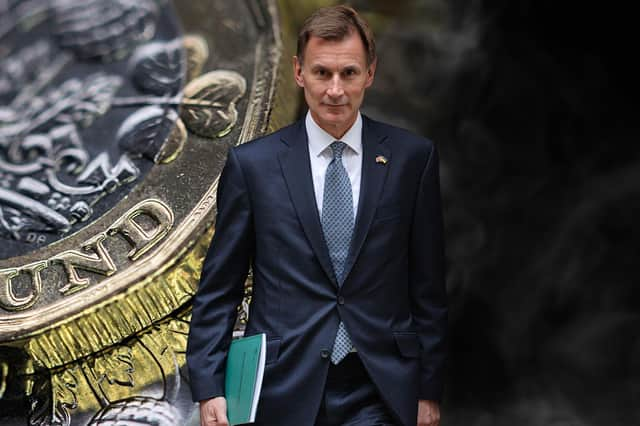Grangemouth closure is bad news for Scotland - Sue Webber


Some in the Scottish Government will think this is great news, but those who believe the potential loss of around eight per cent of Scotland’s manufacturing base is the price of addressing climate change should not be anywhere near decisions about our economic future.
The Scottish Government has set its face against oil and gas and this is the result. The refinery, which has operated for just short of a century, delivers four percent of Scotland’s output, supplying 70 of the filling stations and is the main supplier of aviation fuel, and in 18 months it will all need to be imported. 500 jobs are at risk.
Advertisement
Hide AdAdvertisement
Hide AdThank goodness, then, that Chancellor Jeremy Hunt’s Autumn Statement gave much hope for optimism, with a package of tax cuts and business incentives from which Scottish workers and businesses can benefit. And although the SNP/Green administration is a world class squander-bug, it too will benefit from an extra £545m thanks to the Chancellor’s measures.
The two per cent cut to National Insurance is a tremendous boost for workers, putting up to £754 in their pockets, tempered by the Scottish Government’s ongoing income tax raid which for many will account for most of it.
Widely predicted income tax cuts did not materialise, but they would not automatically apply in Scotland anyway and the grim reality for companies seeking to attract staff from outside Scotland or for firms looking to expand, is the SNP’s punitive personal tax regime is anything but progressive and a clear disincentive.
It gives those skilled refinery workers set to join the jobs market an incentive to take their expertise elsewhere, with the added bonus that if they buy a £300,000 house in England and Wales they will save over £2000 on stamp duty compared to the Scottish property tax.
Advertisement
Hide AdAdvertisement
Hide AdWith the UK National Insurance cut, the 9.8 per cent increase in the National Living Wage to £11.44 an hour, worth over £1800 a year for a full-time worker, is a huge boost for some 200,000 Scots. And with the Back to Work programme, many more of Scotland’s 104,000 long-term jobless have a considerable incentive to seek work.
With inflation halved in a year, wages rising ahead of price increases, and a growing economy ─ which the Office of Budget Responsibility said on Wednesday will continue to grow next year ─ there’s no doubt the UK economy is going in the right direction, but after the Grangemouth announcement the same can’t be said for the SNP’s Scotland.
Of course, SNP finance secretary Shona Robison predictably moaned that “Scotland had been let down on every count” while misrepresenting a health spending boost of around £11m.
And their Westminster economy spokesperson, Drew Hendry, added to the comedy by complaining about high tax burdens when his party can’t tax hard-working people enough and refuses to pass on UK money to help firms with rates.
Advertisement
Hide AdAdvertisement
Hide AdWe need both governments to be laser-focused on economic growth and although we Conservatives know we’re up against it in the polls, Wednesday showed a real sense of purpose and renewal.
All the SNP offers is the same tired, bitter old rhetoric.
Sue Webber is a Scottish Conservative Lothian MSP
Comment Guidelines
National World encourages reader discussion on our stories. User feedback, insights and back-and-forth exchanges add a rich layer of context to reporting. Please review our Community Guidelines before commenting.